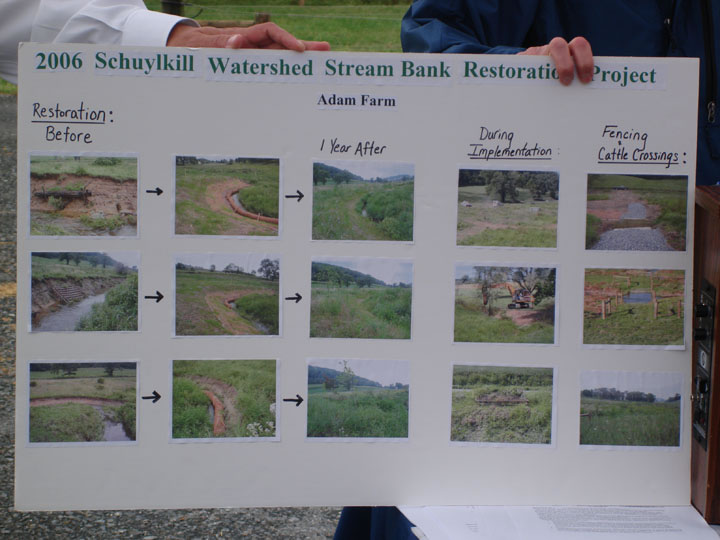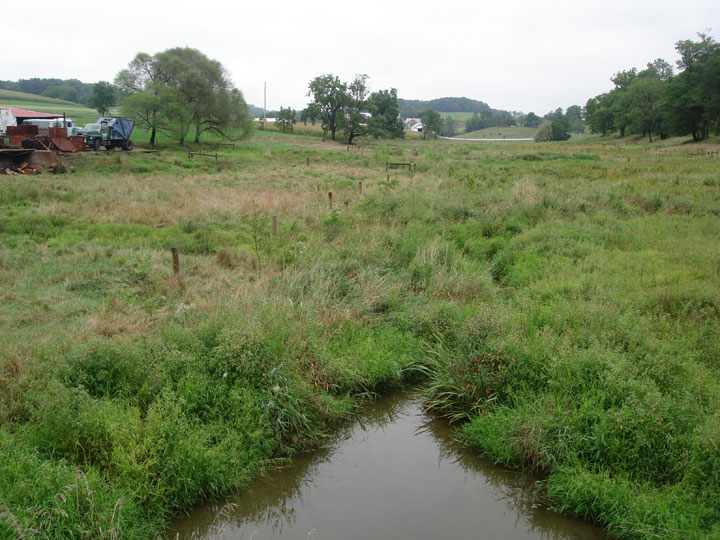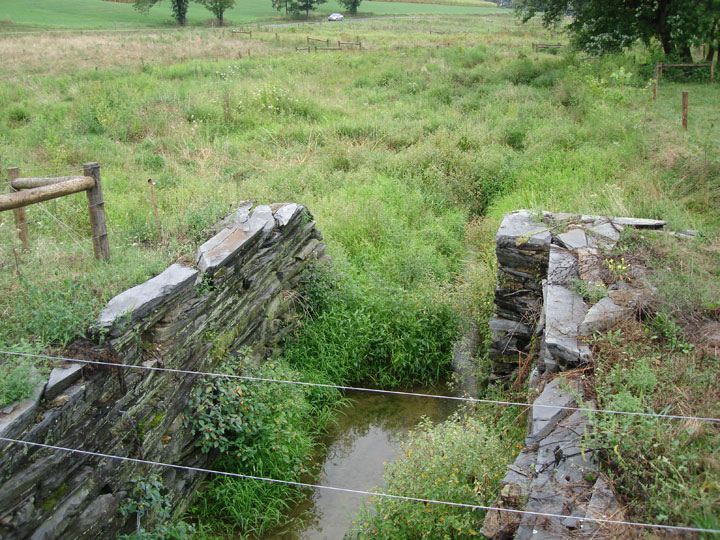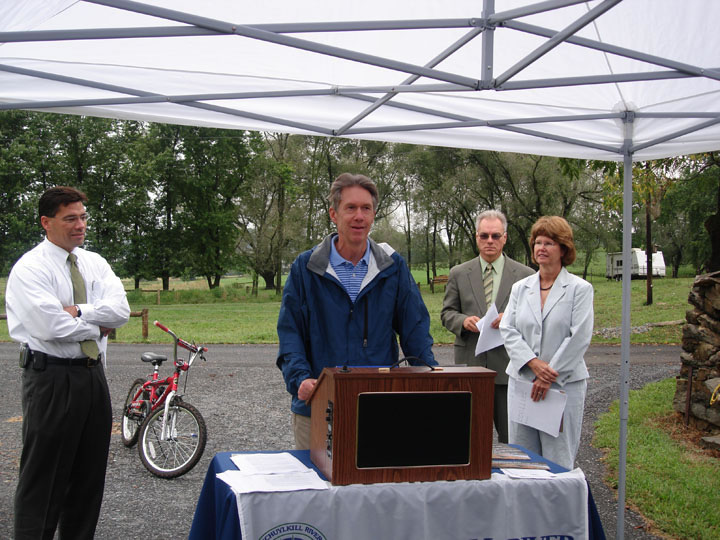Delaware • New Jersey • Pennsylvania
New York • United States of America
For Immediate Release
August 23, 2007
(HAMBURG, Pa.) -- Delaware River Basin Commission (DRBC) Executive Director Carol Collier participated yesterday, August 22, in an event announcing the three projects to receive grants totaling $250,275 from the 2007 Exelon Schuylkill River Watershed Restoration Program.
The grant recipients are:
-
The Berks County Conservancy - $98,500 for work to implement agricultural best management practices (BMPs) on two county farms located on Schuylkill River tributaries.
-
The Delaware Riverkeeper Network - $90,634 for work on a Berks County farm located along Mill Creek; the project includes streambank stabilization as well as the addition of riparian buffer, fencing, and cattle crossings.
-
The Schuylkill Headwaters Association - $61,141 to upgrade three abandoned/acid mine drainage (AMD) remediation systems in the headwaters of the Schuylkill River in Schuylkill County.
“These three projects will help to correct water quality problems resulting from agricultural runoff, eroding stream banks, and abandoned mine drainage into the Schuylkill River and its tributaries, which provide drinking water to 1.5 million people,” Collier said. “Working to improve water quality throughout the Schuylkill Watershed is important to all who live, work, visit, and recreate within its boundaries and to those downstream, as the Schuylkill is the Delaware River’s largest tributary. The Exelon Schuylkill River Watershed Restoration Program demonstrates the value of partnering to realize this shared goal.”
In addition to Collier, speakers included Schuylkill River National and State Heritage Area (SRHA) Executive Director Kurt Zwikl and Exelon Nuclear Limerick Generating Station (LGS) Vice President Chris Mudrick. SRHA, a non-profit organization, was chosen by Exelon in 2006 to oversee and distribute the funds from the restoration program. Pa. State Senator James J. Rhoades’ Chief of Staff Champ Holman also gave remarks.
The announcement took place at the Harold Adam Farm in Hamburg, which received a grant during the first year of the program in 2006. Participants had the opportunity to tour the farm and observe property improvements such as the addition of cattle crossings, streambank fencing, and riparian buffers. The project was completed in the spring of 2007 and highlights how the implementation of these agricultural BMPs can effectively reduce detrimental runoff to a receiving stream, thus improving its water quality.
The Exelon Schuylkill River Watershed Restoration Program resulted from a 2004 DRBC decision to approve Exelon’s application for an opportunity to demonstrate that greater operational flexibility with respect to providing its consumptive cooling water needs at its nuclear-powered LGS would not cause negative environmental impacts to the Schuylkill River. Exelon’s contribution to the restoration program is based on the amount of water that is not required to be pumped from the Delaware River to LGS for consumptive cooling purposes during the demonstration period. Additional information about the demonstration project can be found at www.drbc.net.
A committee comprised of representatives from the DRBC, Exelon, SRHA, U.S. Environmental Protection Agency, Pennsylvania Department of Environmental Protection, and Philadelphia Water Department review grant applications and select the recipients subject to the approval of the DRBC executive director.
Each selected project targets a source of water quality impairment in the Schuylkill River Watershed, and when implemented, will benefit the Schuylkill’s overall ecology. Unrestricted agricultural runoff adds excess nutrients, such as nitrogen and phosphorus, as well as animal waste and other chemicals to waterways, resulting in elevated concentrations of bacteria, reduced levels of dissolved oxygen, and increased amounts of pollution. Additionally, AMD is considered the largest source of stream impairment in the Upper Schuylkill Watershed, adding pollutants to headwater tributaries as well as increasing pH and alkalinity to these waters.
Interest has been expressed to expand the restoration grant program, now funded entirely by Exelon, to include other corporations, utilities, and/or industries in future years.
The DRBC was formed by compact in 1961 through legislation signed into law by President John F. Kennedy and the governors of the four basin states with land draining to the Delaware River (Delaware, New Jersey, New York, and Pennsylvania). The passage of this compact marked the first time in our nation's history that the federal government and a group of states joined together as equal partners in a river basin planning, development, and regulatory agency.
***
Contact: Kate O'Hara, DRBC, 609-883-9500 ext. 205, katharine.o'hara@drbc.state.nj.us
***
Copyright © Delaware River Basin Commission,
P.O. Box 7360, West Trenton, NJ 08628-0360
Phone (609)883-9500; Fax (609)883-9522
Thanks to NJ for hosting the DRBC website



